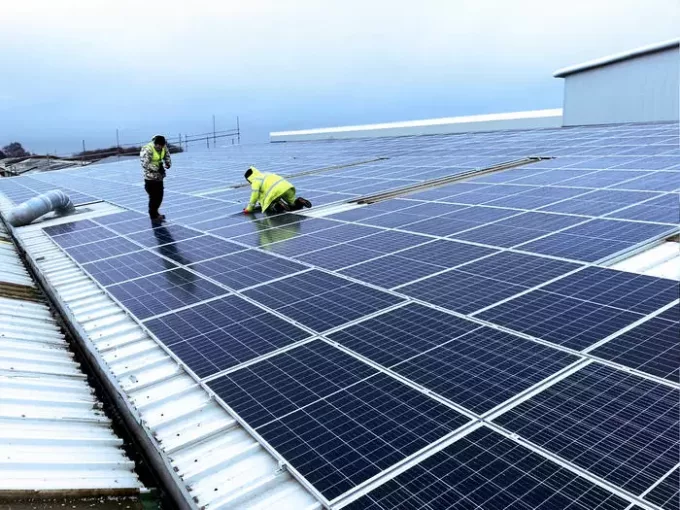Port of Antwerp-Bruges can help shippers 'get your boxes off the roads'
Increasing barge and rail activity has become a central pillar of the growth trajectory at ...

Adding solar panels to warehouses could have knock-on effects, helping the entire supply chain push to net zero, but legislation and mindsets need to change before this is realised.
Speaking to The Loadstar on the sidelines of this week’s Multimodal event in Birmingham, Meri Braziel, chief commercial officer at digital power and infrastructure as a service provider Landways, said decisions made a century ago were hobbling the uptake of solar energy in UK supply chains.
“Britain’s ...
Trump tariffs see hundreds of cancelled container bookings a day from Asia
'Disastrous' DSV-Schenker merger would 'disrupt European haulage market'
'To ship or not to ship', the question for US importers amid tariff uncertainty
'Chaos after chaos' coming from de minimis changes and more tariffs
Forto 'sharpens commercial priorities' as it lays off one-third of staff
List of blanked transpac sailings grows as trade war heats up and demand cools
EC approves DSV takeover of DB Schenker
Overcapacity looms for ocean trades – with more blanked sailings inevitable
Amazon Air’s metamorphosis: 'a different air cargo unit from two years ago'
Shippers in Asia restart ocean shipment bookings – but not from China
India withdraws access for Bangladesh transhipments, in 'very harmful' decision
'Tariff hell' leaves industries in limbo – 'not a great environment to plan'


Comment on this article